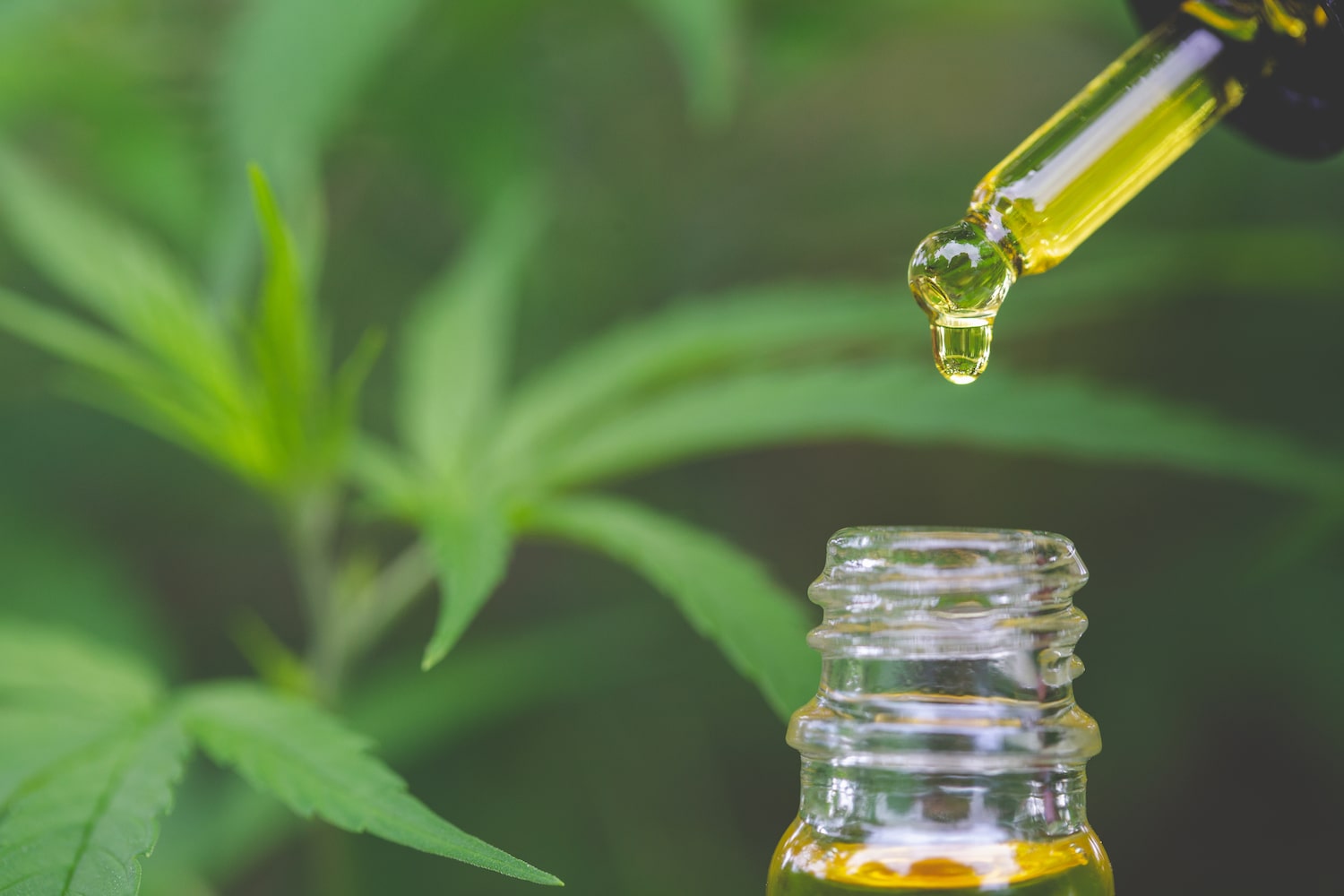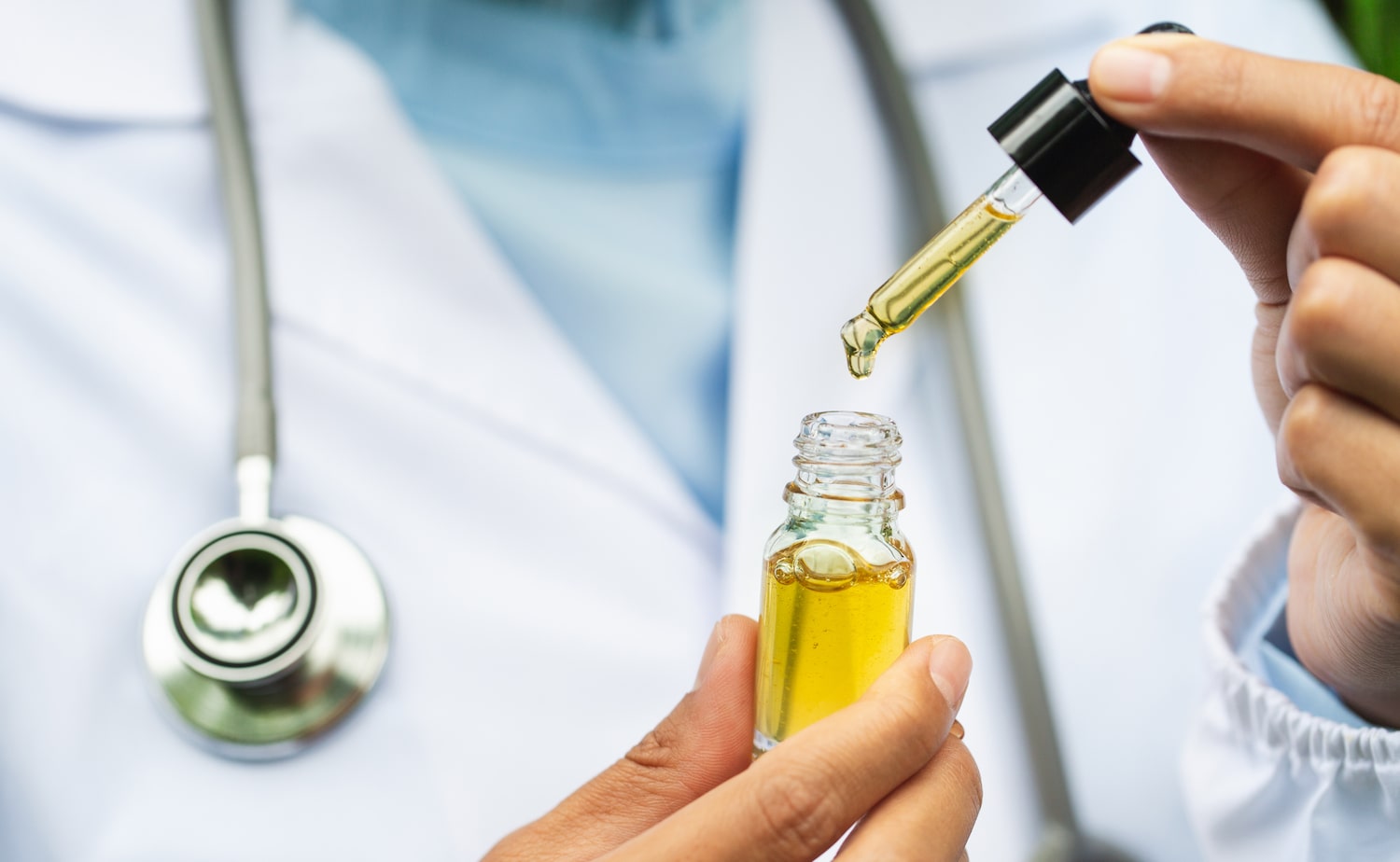The passage of the 2018 Farm Bill legalized the sale of hemp and hemp products in the United States. Since then, consumers have been able to easily find CBD oil and dozens of other cannabidiol-related products.
These can be found at thousands of retailers across the country, from online stores to the corner mini-mart. And while most people have at least heard of CBD—short for cannabidiol—considerable confusion still exists. This confusion includes questions about what it is, whether it’s completely legal, and what health benefits it might offer the average consumer.
Below we dive in to answer the question “what is cannabidiol?”, and break down some of the uses and benefits associated with CBD oils.

What is CBD/Cannabidiol?
The cannabis sativa plant contains more than 100 chemical compounds called cannabinols. These compounds can affect the function of the human body in a variety of ways.
The compound most people associate with marijuana, tetrahydrocannabinol (THC), is responsible for producing the mind-altering “high” that some marijuana users seek. Cannabidiol (CBD), on the other hand, does not have psychoactive effects. However, emerging research has shown that it may be extremely useful for treating a multitude of health conditions.
Recently, the marketplace has been flooded with products that contain CBD. This includes capsules, patches, edibles, topical creams and oil tinctures. CBD oil is typically the most potent delivery method of the compound. This oil is made by combining CBD extracted from the cannabis plant with coconut or hemp seed oil.
How Does CBD Oil Work?
The human body processes signals from cannabinoids and also produces a form of these compounds known as endocannabinoids. The endocannabinoid system is involved in regulating basic functions like immune response, sleep and pain, among others.
When it enters the bloodstream, the CBD activates or inhibits other compounds within the endocannabinoid system, such as the pain-regulating compound anandamide, potentially reducing the level of pain a person experiences. CBD is also thought to reduce inflammation in the nervous system, which can mitigate insomnia, immune disorders and other ailments.

Is CBD Legal?
Hemp and marijuana are similar but botanically distinct plants in the cannabis genus. While both produce significant amounts of CBD, marijuana plants produce more of the psychoactive compound THC.
The 2018 Farm Bill removed hemp from the federal list of Schedule I substances. Instead, it labeled it an agricultural commodity. This made it federally legal as long as it contains less than .3 percent THC and is cultivated by a licensed grower. However, marijuana and marijuana-derived CBD remain illegal at the federal level.
State laws regarding both hemp-derived and marijuana-derived CBD vary widely. In states like California and Colorado, marijuana and its derivatives may be used recreationally under the law. In other states like Florida, Illinois and New York, CBD derived from marijuana is legal for medicinal use. However, patients must obtain a medical marijuana card.
A few states have taken particularly restrictive stances against all forms of CBD, even hemp-derived CBD. So, if you live in Idaho, Nebraska or South Dakota, be sure to do your legal due diligence before purchasing CBD products.
What Are the Potential Health Benefits of CBD Oils and Cannabidiol?
While the research on CBD is still relatively new, it has shown promise in studies investigating its efficacy in treating a range of medical issues and symptoms of chronic illnesses.

1. Pain Relief
Researchers believe that CBD works to reduce pain by altering the way neurotransmitters bind to cannabinoid receptors in the central nervous system. These receptors receive chemical signals from various stimuli and direct cells to respond accordingly. The impact of CBD on the receptors seems to reduce inflammation and diminish pain levels. This effect has been observed in multiple scientific studies on various types of pain, including:
- A 2016 study in which rats with arthritis were treated with gel that contained varying levels of CBD. Rats given the third-highest dose appeared to experience less joint pain and inflammation than the other study groups.
- A 2018 review of studies conducted between 1975 and 2018. This found that CBD was effective in reducing neuropathic pain, fibromyalgia pain and other types of pain.
2. Depression and Anxiety
Anxiety and depression may not be well-controlled using traditional pharmaceuticals. Also, these treatments often come with adverse side effects. These adverse effects included lethargy, fatigue, weight gain, insomnia, and headache. The use of CBD oil has shown promising results in patients looking for supplemental treatment or a natural alternative to prescription drugs.
While the way the compound works on the body is still being studied, researchers think CBD may alter levels of the neurotransmitter serotonin. This neurotransmitter plays a central role in depression and anxiety.
The following conditions seem to benefit from the use of CBD:
- Anxiety: One study showed that men who took a 300-milligram dose of CBD experienced significantly less anxiety during a public speaking test than those who took higher or lower doses or a placebo.
- Depression: Early studies in mice indicate antidepressant effects from the use of CBD.
- Seasonal Affective Disorder (SAD): A 2011 study found that people who took 400 milligrams of oral CBD reported a reduction in symptoms compared to the control group.
- Post-Traumatic Stress Disorder (PTSD): Multiple studies have confirmed the efficacy of CBD in managing the symptoms of PTSD.
3. Neurological Disorders
Given CBD’s effects of the endocannabinoid system and other brain signaling activity, scientists hypothesize that use of CBD may benefit patients with neurological disorders like multiple sclerosis, Parkinson’s disease and epilepsy. Studies seem to support this theory:
- Epilepsy: In one study, epilepsy patients who received dosages of CBD based on their body weight saw their seizure frequency reduced by a median of 36.5 percent. Another study of children with Dravet syndrome, a severe childhood epilepsy disorder, found that CBD oil substantially reduced overall seizure activity.
- Multiple Sclerosis (MS): Research indicates that use of CBD oil can improve mobility in MS patients. It does this by reducing spasticity, inflammation, pain, fatigue and depression.
- Parkinson’s Disease: Patients with Parkinson’s Disease reported improvements in sleep quality and overall quality of life while using CBD.
- Alzheimer’s Disease: Early studies indicate that CBD may help slow or prevent cognitive degeneration in people diagnosed with or genetically predisposed to Alzheimer’s disease.
4. Cardiac Health
Cannabidiol has shown great promise in improving heart health. This is especially true in its effectiveness in lowering high blood pressure.
- A study published in 2017 found that treating men with one 600-milligram dose of CBD oil reduced their resting blood pressure in comparison to a placebo. During stress tests, the same men also saw a smaller than normal increase in blood pressure after taking the single dose of CBD.
- Further testing continues in humans. Yet, studies in animals have found CBD’s antioxidant and stress-reducing abilities are impressive. It minimizes the systemic inflammation and cell death related to heart disease.
5. Substance Abuse and Addiction
For people struggling with various forms of addiction, multiple studies have shown that CBD can help reduce cravings and mitigate withdrawal symptoms. This can increase the likelihood of achieving and maintaining sobriety.
- Opioids: Studies in rats showed that CBD may alter the brain circuitry around addiction and reduce dependence on morphine and heroin.
- Smoking: One study found that using inhalers with CBD helped smokers reduce the number of cigarettes they smoked in a day. With this, there were no increases in withdrawal symptoms.
- Other drugs: A 2015 review of more than a dozen earlier studies pointed to evidence that CBD can have a therapeutic effect on people fighting addictions to cocaine, opioids and illegal stimulants. CBD treatment shown to reduce withdrawal-related symptoms like anxiety, pain and insomnia.
6. Skin Disorders
The anti-inflammatory properties of CBD appear to be effective in treating several skin disorders, including acne and eczema.
Acne, which affects about 10 percent of the population, is still not well-understood. However, doctors believe it may be caused by a combination of genetics, inflammation, bacteria and excess skin oil (sebum).
Early test-tube studies suggest that CBD oil may prevent overproduction of sebum and halt the activation of inflammatory cytokines. Other studies have shown that CBD’s anti-inflammatory effects make it a powerful treatment for chronic acne sufferers.
In eczema, overactive immune cells trigger an inflammatory response in the skin, leading to dry, scaly patches and persistent itching. According to a 2017 study published in the Journal of the American Academy of Dermatology, CBD’s anti-inflammatory properties make it a promising treatment for eczema, psoriasis and related skin conditions.
7. Disease Prevention
Scientists are also working to investigate the potential effects of CBD on treating and preventing other serious diseases, including cancer and diabetes.
- A 2015 study found that CBD use could help slow the growth of abnormal cells in patients with several types of cancer, including lung, breast, prostate, colon and brain cancers.
- A review published in the British Journal of Clinical Pharmacology concluded that CBD may help prevent the spread of cancer and may also increase the efficacy of chemotherapy and other treatments when used alongside them.
- A 2006 study of diabetic mice found that treatment with CBD cut the incidence of diabetes in subjects by more than half while also reducing inflammation in the pancreas.

Do Cannabidiol or CBD Have Any Side Effects?
CBD oil is a safe supplement, per the majority of health experts. For most people, moderate doses of CBD cause relatively few adverse effects, most of them mild. The most common side effects reported by CBD users include changes in appetite, bloating, nausea, dry mouth, drowsiness, dizziness, and diarrhea.
However, you should always talk to your doctor before starting CBD treatment. This is to prevent any dangerous interactions with medications you may already be taking.
For example, has your doctor prescribed a drug that has a “grapefruit warning”? If so, CBD may interact with the medication in such a way that the drug has an adverse effect on the metabolism. This could ultimately be harmful to your health.
Final Thoughts
Research into the health and medical effects of CBD remains in its infancy. However, early studies have suggested CBD oil might be useful in managing wide ranges of chronic conditions. These alleviations range from depression and anxiety, to heart disease, diabetes, and beyond.
If you suffer from any of the issues mentioned above, you may want to consider adding CBD oil to your current treatment regimen.
